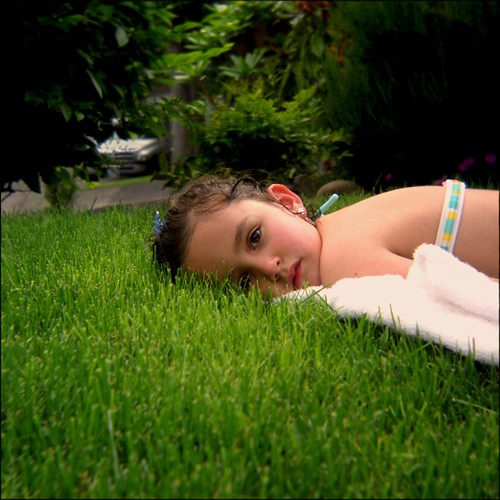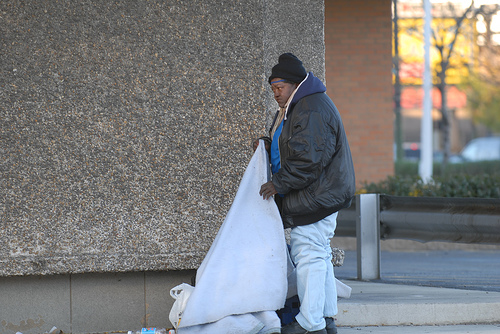
WE ARE SEVEN.
by William Wordsworth
A simple child, dear brother Jim,
That lightly draws its breath,
And feels its life in every limb,
What should it know of death?
I met a little cottage girl,
She was eight years old, she said ;
Her hair was thick with many a curl
That cluster’d round her head.
She had a rustic, woodland air,
And she was wildly clad ;
Her eyes were fair, and very fair,
—Her beauty made me glad.
“Sisters and brothers, little maid,
“How many may you be ?”
“How many ? seven in all,” she said,
And wondering looked at me.
“And where are they, I pray you tell?”
She answered, “ Seven are we,
“And two of us at Conway dwell,
“And two are gone to sea.
“Two of us in the church-yard lie,
“My sister and my brother,
“And in the church-yard cottage, I
“Dwell near them with my mother.”
“You say that two at Conway dwell,
“And two are gone to sea,
“Yet you are seven ; I pray you tell
“Sweet Maid, how this may be ?”
Then did the little Maid reply,
“Seven boys and girls are we ;
“Two of us in the church-yard lie,
“Beneath the church-yard tree.”
“You run about, my little maid,
“Your limbs they are alive ;
“If two are in the church-yard laid,
“Then ye are only five.”
“Their graves are green, they may be seen,
”The little Maid replied,
“Twelve steps or more from my mother’s door,
“And they are side by side.
“My stockings there I often knit,
“My ’kerchief there I hem ;
“And there upon the ground I sit—
“I sit and sing to them.
“And often after sunset, Sir,
“When it is light and fair,
“I take my little porringer,
“And eat my supper there.
“The first that died was little Jane ;
“In bed she moaning lay,
“Till God released her of her pain,
“And then she went away.
“So in the church-yard she was laid,
“And all the summer dry,
“Together round her grave we played,
“My brother John and I.
“And when the ground was white with snow,
“And I could run and slide,
“My brother John was forced to go,
“And he lies by her side.”
“How many are you then,” said I,
“If they two are in Heaven?”
The little Maiden did reply,
“O Master ! we are seven.”
“But they are dead ; those two are dead!
“Their spirits are in heaven !”’
Twas throwing words away ; for still
The little Maid would have her will,
And said, “Nay, we are seven !”
We are Seven is an interesting narrative poem which poses an interesting view on death. The speaker has a traditional view of death, and seems totally unable to comprehend the little girl’s more liberal ideas. The little girl feels that her dead siblings are still around in some way. She feels their presence around her. It is a very positive view of death. The speaker refuses to understand the little girl’s opinion.
Wordsworth got the idea for the poem while he was traveling around England in 1793. Wordsworth visited Goodrich Castle and met a little girl who served as a basis for the girl in the poem. He never took the name and didn’t really document the conversation, but the encounter had a major effect on the man.
The Romanticists have a specific view on children. They represent a simpler type of existence, untainted by civilization. The little girl’s ideas involving death are totally in line with this. She doesn’t view death as a super negative or bleak aspect of life. Her ideas of death pay respect to the natural cycle of renewal. Death is a natural part of life. The little girl has a much better understanding of this than the much older gentleman. The poem is an excellent example of the significance of children to the Romantic writers.




